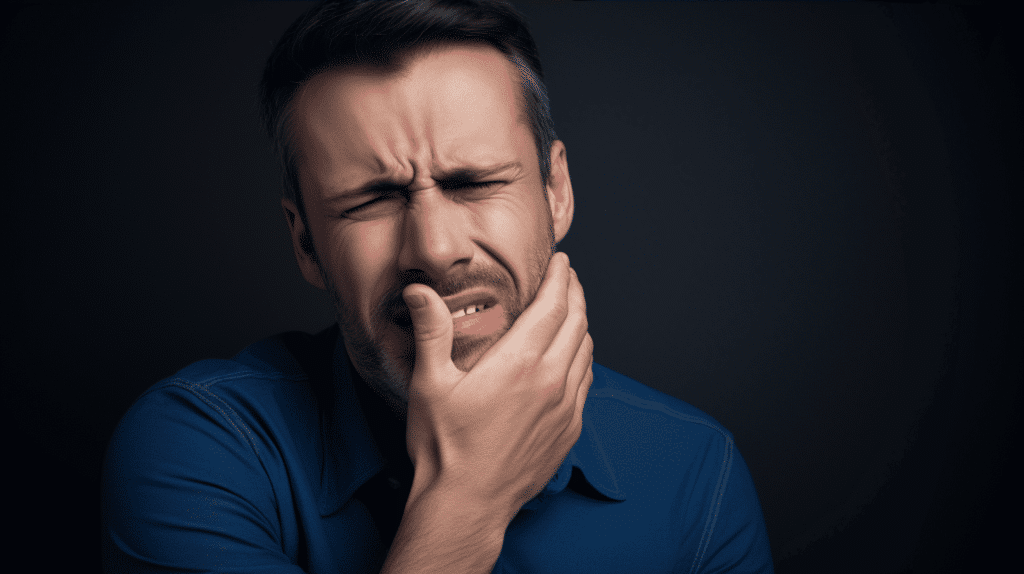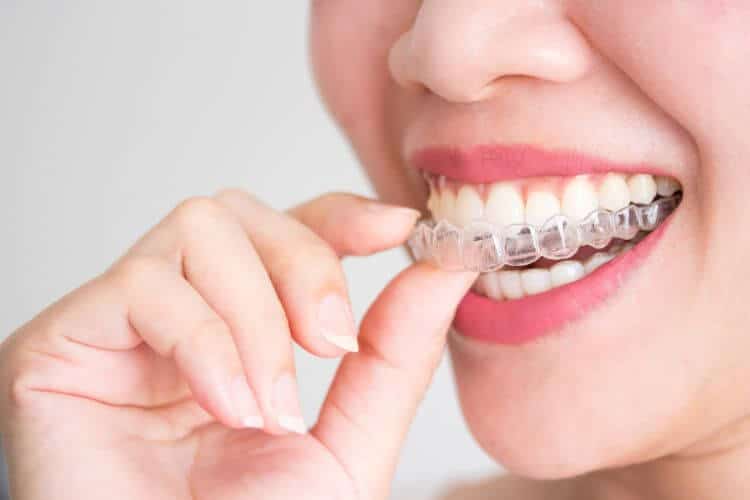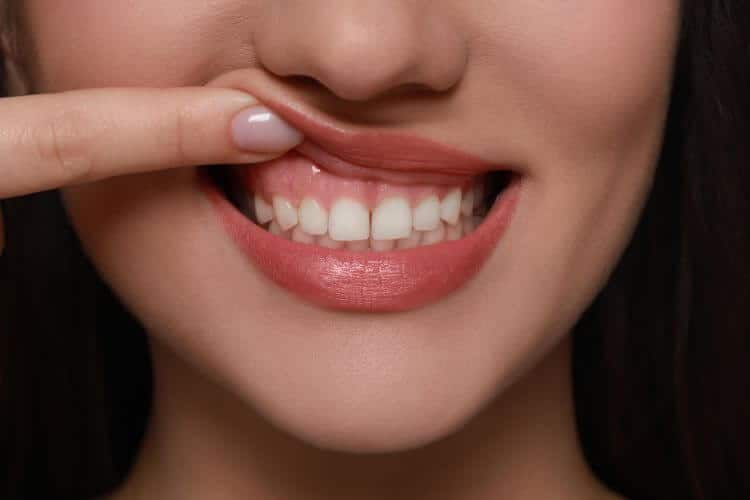A sunny day, a hearty laugh, a beautiful memory – what do all of these moments have in common? The flash of a dazzling, healthy smile! However, have you ever thought about what it takes to maintain that smile? gum health Beyond daily brushing and flossing, there’s a lot more you need to do to protect your oral health. 😁
It’s high time we discussed a less pleasant topic that is critical to maintaining that gleaming grin–dental emergencies. These unforeseen incidents can be a nightmare 🙀 for anyone, causing not just excruciating pain but potentially long-lasting damage to your oral health.
In this handy guide, we will venture into what constitutes a dental emergency. We aim to give you a better understanding of the different types of dental emergencies, their common causes, and most importantly, their impact on our overall oral health. Also, you’ll find valuable tips for preventing these emergencies and learn how to effectively handle them when they occur.
So buckle up and let’s embark on this journey together, because at the risk of sounding cliché, prevention is indeed better than cure. Especially when it comes to safeguarding our precious smiles!
Table of Contents
Understanding Dental Emergencies
In the hustle and bustle of modern life, a sudden toothache or gum swelling can stop you right in your tracks. A dental emergency, as you’ll learn, is not something to be taken lightly. Dental emergencies can vary in severity and cause, but they all have one thing in common – they require immediate attention. In this section, we’ll delve deeper into dental emergencies, demystify what they are, and explore their common types. 🦷💡
Definition and Types of Dental Emergencies
So, what exactly is a dental emergency? A dental emergency can be defined as any condition related to your oral health that requires prompt action to prevent further damage, alleviate pain, or reduce the risk of permanent and serious issues.
Now that we know what a dental emergency is, let’s discuss some common types:
- Toothache: Severe pain in and around a tooth that could indicate several underlying problems, such as an abscess or tooth decay. 🦷😖
- Broken or chipped tooth: If a tooth is cracked, chipped or broken due to a fall, accident or biting onto a hard object, it requires immediate attention to prevent further damage or loss.
- Knocked out tooth: This is a severe case where a tooth is completely knocked out from the socket during an accident or sports activity. 👄🚨
- Swollen or infected gums: Red, tender, and swollen gums can be a sign of gingivitis or gum disease.
While these are just a few examples, there are other conditions that could also qualify as a dental emergency. It’s always important to consult with a qualified dental professional if you suspect you have one.
Common Causes of Dental Emergencies
Now, understanding the causes of these dental emergencies can help us prevent them. Here are some common reasons you might find yourself in the middle of a dental emergency:
- Poor oral hygiene: Lack of regular cleaning can lead to plaque build-up, which can cause gum disease and tooth decay. 🦷🔍
- Accidents and injuries: A sudden blow to the face or mouth can result in a chipped, cracked or knocked out tooth.
- Eating hard or sticky foods: This can lead to broken or dislodged fillings and crowns.
Knowing these causes can indeed help us take better care of our teeth and gums to avoid these emergencies. Remember, prevention is always better than a cure. Stay on top of your oral health through regular dental checkups and good dental hygiene practices.
In the end, we can conclude that understanding dental emergencies isn’t just about dealing with them – it’s also about preventing them. If you’re equipped with the right knowledge and preparedness, these emergencies don’t have to be a cause for panic. Just remember when it comes to dental health, every moment counts – so act fast and head to your dentist at the earliest.
Impact of Dental Emergencies on Oral Health
Ever imagined waking up in the middle of the night, feeling a sharp pain in your mouth? 🤔 One of the worst experiences, isn’t it? Having a dental emergency is indeed an unpleasant experience that can have immediate and lasting effects on our oral health. If not addressed promptly, these situations could escalate into more significant issues over time.
In this section, we’ll explore the potential short-term and long-term consequences of dental emergencies, discussing everything from temporary discomfort to permanent damage. Buckle up folks, let’s take a dive into this little-known side of oral health. 😊
Potential Short-term Consequences
Dental emergencies don’t just catch us off guard; they can bring about some immediate consequences as well. Here are a few things you might notice shortly after a dental emergency:
- Pain and discomfort: The most common short-term consequence, and the one most likely to get you calling your dentist in the middle of the night, is severe pain and discomfort. 🦷
- Difficulty eating or speaking: Depending on the nature of the emergency, you might struggle with regular activities like eating or talking.
- Bleeding or swelling: In some cases, dental emergencies can cause bleeding or swelling in the affected area.
While these issues may seem manageable in the short term, neglecting to address them promptly can lead to more significant problems down the line.
Long-term Effects – Gum Health
Let’s now look at the potential long-term effects of ignoring a dental emergency:
- Permanent tooth loss: Prolonged neglect of a dental emergency can escalate to the point of permanent tooth loss. 😱
- Infections: Untreated dental emergencies can give rise to infections, which can further lead to complications like abscesses or spread to other parts of the body.
- Cost of treatment: The longer you wait to treat a dental emergency, the more expensive the eventual treatment could become.
- Loss of confidence: Dental issues can impact your smile, which can, in turn, affect your confidence and self-esteem, portraying a significant psychological toll.
At the end of the day, our mission is to help you maintain your oral health at its peak. So, don’t ignore that nagging toothache or the swollen rash around your mouth. Your oral health is a crucial part of your overall well-being. Understanding the impact of dental emergencies can help us take them more seriously and seek immediate help when they occur. 🌟
Preventing Dental Emergencies – Gum Health
We all know that sudden, unexpected toothache or an unfortunate sports-related mouth injury can happen at any time, taking us by surprise. However, with some proactive steps and preventive measures, we can greatly reduce the chances of these dental emergencies. This article will provide guidance on how to do exactly that.
Proper Oral Hygiene – Gum Health
You have heard it countless times, but we cannot insist enough on the fundamental importance of proper oral hygiene. This is the foundation for a healthy mouth and a charming smile. Here are some simple steps you should never neglect:
- Brush your teeth twice daily: This keeps the harmful bacteria in check.
- Floss regularly: Flossing removes small food particles stuck between your teeth that a toothbrush can’t reach.
- Use a fluoride toothpaste: Fluoride strengthens the teeth enamel and makes it more resistant to decay.
- Rinse your mouth after meals: This simple step may wash away food particles and inhibit plaque build-up.
In our experience, many dental emergencies are caused by simple neglect of these practices. After all, prevention is better than cure, especially when it comes to your teeth! 😄
Regular Dental Check-ups
What’s that? You’re scared of dentists? Aren’t we all! But here’s the thing, regular check-ups are crucial in maintaining your oral health and preventing dental emergencies. We don’t mean just visiting your dentist when you’re in pain, but consistently, as a part of a proactive prevention plan.
Regular dental visits can help:
- Catch issues early: Minor issues can sometimes become major if left unchecked. Detecting these issues early can save you from a lot of pain later.
- Professional teeth cleaning: Even if you’re diligent with your oral hygiene, professional cleaning removes plaque and tartar that can’t be removed at home.
- Get expert tips: Every mouth is unique. Your dentist can provide specific advice tailored to your teeth and gums.
Remember, these visits are not a punishment but a preventative action to keep your beautiful smile intact.
Using Mouthguards During Sports
Many dental emergencies are sports-related. Yes, that football or hockey game can cost you a tooth if you’re not careful. 😮 Use of mouthguards during any contact sports is a simple yet effective precaution to prevent such injuries.
Mouthguards:
- Absorb and distribute the forces that can result in dental injuries.
- Protect your teeth, lips, cheeks, and gums from sports-related injuries.
- Can be custom made by your dentist for utmost comfort and protection.
Imagine being able to enjoy your favorite sport while also knowing you are protecting that million-dollar smile. Now, that’s a win-win situation!
In all, preventing dental emergencies is largely in our hands. It involves adopting simple yet effective oral hygiene practices, regular check-ups with our dentists, and taking precautions during contact sports. It’s time we take charge of our oral health and protect our beautiful smiles. Through these measures, we ensure happy teeth and happier us! 😄
Gum Health – Handling Dental Emergencies
When it comes to dental emergencies, it’s essential to be prepared and equipped with the right knowledge to prevent them from turning into severe complications. Whether it’s a broken tooth, painful tooth abscess, or a knocked-out tooth, knowing how to respond can make a massive difference to your dental health. Here, we will walk you through some handy do’s and don’ts when dealing with such situations, the importance of seeking prompt dental care, and where you can find emergency dental care facilities.
Do’s and Don’ts
Dental emergencies can come in various forms, but rest assured, there are immediate actions you can undertake that could potentially save your teeth:
- Do rinse your mouth with warm water if you experience a severe toothache or mouth injury.
- In the case of a broken tooth, try to save all pieces and rinse with warm water.
- Apply a cold compress on the affected area to help reduce swelling and soothe pain.
However, avoid falling into common misconceptions and risks that could worsen your dental emergency:
- Don’t disregard minor toothaches, as they can sometimes be a sign of more serious issues.
- Avoid applying aspirin directly on the aching tooth or gums, as it may burn your gum tissue.
“To add, when dealing with dental emergencies, it’s essential to keep calm. It may feel overwhelming, but remember that prompt action and the right approach can help considerably.”
Gum Health – Seeking Prompt Dental Care
Regardless of the precautions and initial responses, there’s no substitute for professional dental help, and seeking prompt dental care is vital.
- Any dental emergency left unattended can result in more serious problems, leading to the increased risk of lasting damage or even the need for more extensive and costly treatment.
- A quick trip to the dentist can help you get the best assessment, guidance, and treatment needed for your situation.
Emergency Dental Care Facilities
Don’t fret if your dental emergencies occur outside regular clinic hours, as many facilities offer 24/7 care:
- Look for dental clinics or hospitals with an around-the-clock service near you.
- Some dental offices offer after-hours contact information for their patients in case of emergencies.
- There are also online resources that you can use to locate immediate dental services in your area.
A dental emergency doesn’t have to be a traumatic event. Armed with the proper knowledge and immediate action, you’ll undoubtedly handle these situations like a champ!
Gum Health – Conclusion
You’ve finally reached the end of our dental journey. Throughout this article, we delved into the myriad of dental emergencies, their causes, implications, and more vitally, how you can mitigate them effectively.
Let’s all agree that unintended oral problems aren’t the most pleasant surprise, but when forearmed with the proper knowledge, they become significantly less daunting. Always remember, it’s a two-fold effort that combines your proactive oral hygiene measures and regular dental check-ups to circumvent these unforeseen dilemmas.
So, are you ready to take your oral health game to a whole new level? Let’s put an end to those unsolicited dental troubles right away! We, at the Wilshire Smile Studio, are steadfast in our commitment to lend you a helping hand when those pesky dental emergencies arise. As a trusted family dentistry, we offer an array of dental services like cosmetic treatments, dental implants, Invisalign, teeth whitening, preventative dentistry, emergency dental care, and more. With our expert team, latest technology, and personalized care, we are ever ready to assist you in preserving that captivating smile of yours. Book an appointment with us today, and let us join your journey towards excellent oral health.
Our ultimate goal is to transform every frown of dental discomfort into a sparkling, gleaming smile, for a trouble-free mouth is a key ingredient to a jovial heart! Let your smile be your best accessory, and let us help you wear it well!
Remember, in the world of oral health, prevention is the best policy. Stay vigilant, stay healthy, and keep smiling, because every smile matters — especially yours!
Book your free consultation with us online or call (323) DENTIST (323-336-8478) today.
Frequently Asked Questions
1. What are some common dental emergencies?
Common dental emergencies include toothache, chipped or broken teeth, knocked-out teeth, abscess, lost fillings or crowns, and severe gum infections.
2. What should I do in case of a toothache?
In case of a toothache, rinse your mouth with warm water and gently floss to remove any trapped food particles Gum Health. Avoid placing aspirin or any other painkillers directly on your gums, as it can burn the gum tissue Gum Health. Schedule an appointment with your dentist to properly diagnose and treat the toothache.
3. How can I handle a knocked-out tooth?
If a tooth is knocked out, carefully pick it up by the crown (the part that is usually exposed in the mouth) and avoid touching the root Gum Health. Rinse the tooth with water if it’s dirty, but do not scrub or remove any attached tissue fragments. Try to reinsert the tooth into its socket, or if not possible, place it in a container with milk or saline solution and see a dentist immediately.
4. What are the consequences of ignoring a dental emergency?
Ignoring a dental emergency can lead to severe pain, infection, tooth loss, and even complications that can affect your overall health. It’s important to seek immediate dental care to prevent further damage.
5. How can I prevent dental emergencies?
To prevent dental emergencies, maintain good oral hygiene by brushing twice a day, flossing daily, and visiting your dentist regularly. Avoid chewing on hard foods, and wear mouthguards during sports activities. In case of any injury or pain, seek dental care promptly to address minor issues before they become emergencies.







